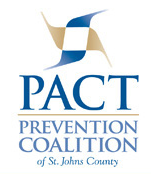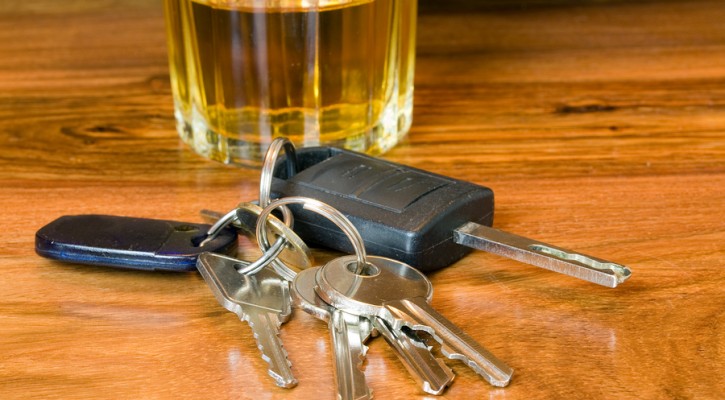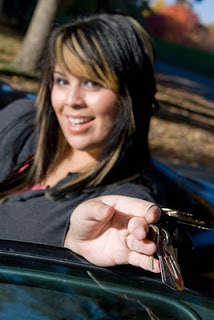Category Archive: Parents

5 Teen Driving Safety Tips
January 11, 2011
Tomes can be written about teen driving safety tips but some of the more important ones, are usually the ones that are both the most simple and sometimes-overlooked. Most people know that drinking while driving is never a good idea, regardless of if it is a new driver, or older driver. But there are several other reminders to pass on to family and friends.
Here are a few of the better teen driving safety tips:
Contracts with parents – This is by far the simplest and easiest to do to keep teens safe: maintain a Parent-Teen driving contract or logbook. It could be as simple as a set of dos and don’ts from parents to their teens; along with the appropriate consequences should the teen break any of the terms of agreement. A logbook is helpful to limit access to the vehicle and monitor your teens use and responsibility toward driving and care. Studies show that when teens are not given unlimited access to the vehicle, that they take better care of it and are involved in fewer crashes and receive les tickets. The logbook can be as simple as a teen noting down the times of departure and arrival if the vehicle will be used.
Don’t be a chauffeur – A teen driving safety tip is for teens not to become their friend’s personal driver. Just because a teen is able to drive does not mean they are capable of handling the distraction and responsibility for their passengers. Many states have enacted laws prohibiting learner’s permit holders from having passengers under 21, and for newly licensed drivers limiting passengers as well. More passengers equate to more variables to lose focus on while driving.
Learn from defensive driving, not by driving around – Driver’s education and defensive driving courses are specifically designed to create a controlled environment for new drivers to hone their skills and learn strategies for safe driving. Busy streets are not for learning defensive driving on the fly.
Buckle up! – Teach a teen driver to practice buckling up before even starting the vehicle. Wearing your safety belt reduces your chances of being killed or injured by up to 50 percent. As the driver, it keeps you at wheel and in control of the vehicle, which can help you react to other compounding situations in a crash. For a passenger buckling up reduces their body of being thrown from the vehicle, crashing into the interior of the vehicle or other occupants, and reduces the damage caused internally by the force to their organs. Making a constant habit of buckling up before turning on the ignition will go a long way to ensuring their safety and avoiding a citation.
Distracted Driving Mobile App – Most distracted driving mobile applications are designed to disable a mobile phone’s features while the phone is moving. This is a great way to avoid the temptation to answer the phone or a text while behind the wheel. Another feature for many of these apps is to designate locations through their Global Positioning System (GPS) that are unsafe allowing parents to be notified, should their teen find themselves in those spots.
Vehicle crashes are the number one cause of deaths for teens, make it a priority to raise vehicle safety awareness.

Do You Know the Law?
December 10, 2010
Do you know what is considered to be legal verses illegal? Do you know what the consequences are if you break the law? Is it a fine, jail time or some other penalty? Many people get so busy with their daily lives that they don’t keep up-to-date on new laws or share with family and friends their knowledge of the laws that they are familiar with. Although sometimes, people innocently think they are sharing information, they may unknowingly share information that is false or outdated.
Ignorance of the law is not a justifiable excuse for breaking the law. In so many situations, it is easy to react without considering the consequences. Learning about the laws in your state will not only help you to be more aware personally, the knowledge you gain can be shared with family and friends to help prevent negative situations from occurring.
Fortunately, several groups of civic minded community members are collaborating together to help educate the public on the laws and consequences in their community. These groups come from the sectors of law enforcement, judicial, education, prevention, and treatment and include agencies, services and advocates.
One such group is PACT Prevention Coalition of St. Johns County. The coalition is comprised of groups of people from diverse disciplines in the community including members who represent: youth, parents, education, business, government, faith-based, media, law enforcement, substance abuse/mental health providers, youth serving agencies, healthcare, civic/volunteer groups, and community residents. The goal of these coalitions is to create safe, healthy and drug-free communities and in turn, making them better places to live. They strengthen the community and its members with technical assistance and training, public policy, media strategies and marketing programs, conferences and special events. Heidi Matheny, Coalition Coordinator for PACT Prevention Coalition is currently compiling a booklet to be given out at the local high schools and colleges. Heidi said ”We wanted to enable and encourage youth to make empowered decisions by taking the time to know and understand the laws while weighing the consequences of their behaviors. This booklet is also intended as a tool for parents.”
The booklet is going to print and the PACT Prevention Coalition is looking to distribute 30,000 copies from this first printing.
Some items that are covered include:
- Crime Defined
- Principal Theory
- Alcohol
- Tobacco
- Parties
- Computer Crimes
- Mandatory Consequences
Many others topics are also included such as potential future obstacles and local resources to contact.
Take time to check in your community to see if this type information is available. In St. Johns County you can go to the website at www.pactprevention.org, click the contact link and request your copy. Join other civic mind people to help make our communities the best they can be.

Preventing Underage Drinking and Driving
November 22, 2010
Underage drinking should and does pose concern for parents. Combine drinking with teens who are receiving their learner’s permits or full operators license and you have a recipe for disaster.
For parents and guardians, it will be up to them to make sure that they set the parameters and guidelines to keep their teens safe at all times. But doing so without imposing too much control and giving away too much freedom is essential. Otherwise, teens may make the wrong choices when faced with decisions, they may soon regret.
So what can be done? What can be done to help a teen from getting into preventable bad situations?
There are a few steps parents can take, including:
Get to know the parents of the teen’s friends – Acquaint yourself with the parents of your teen’s friends. Make sure you are on the same wavelength when it comes to what your expectations and parameters are for your teen. Also, treating your teen’s friends with respect or as if they are family will make them think twice before trying something irresponsible. If another parent isn’t too concerned about underage drinking, put out facts. Never argue, instead, share your concerns and the reason you have them, along with the facts and statistics on underage drinking and how it affects the teenage brain. Once they understand the science and statistics, hopefully they will change their minds.
Hide/Lock up the alcohol – Remember, out of sight, out of mind. Don’t make it easy for them to find alcohol and be irresponsible. Ask the parents of your teen’s friends to do the same. Homeowners and other adults can be held liable for what occurs in their home whether they were present or not. Be prudent and not an enabler for reckless teen behavior.
Be the example for them to follow – Be consistent in your message. Never break the rules you make or take part in illegal, unhealthy or dangerous substances or activities. Your actions are the most powerful message to your teen of what is acceptable in your family.
Limit teen driving times and vehicle access – Create and follow a parent-teen contract. Give them limits as to when they can drive a vehicle and how often they can use it. Check in often with your teen. Be sure you know how to reach them. Know where they’re going and ask whether anyone will have alcohol and if adults will be present.
Support the law – Most of the underage drinking laws have made bars and liquor establishments responsible for whatever damages an underage customer might do or incur. They are also likely to have their licenses for selling revoked, if proven to be selling to minors or someone with fake ids. Law enforcement is also cracking down on the makers of fake ids, and violators are given harsh penalties if proven guilty.
Install an anti-distracted driving mobile application – Most of these apps are designed to combat distracted driving, but they can also be used to set safe driving zones, and can alert you if a teen is going over a certain pre-approved point, like, say, a bar or known trouble area. It could also help prevent your teen from getting into a distracted driving crash.
Talk to your teen – Have a straight-up conversation about the effects of drinking and the dangers of drinking and driving. Make sure they understand the penalties, how it reflects on their legal and driving records and how that might affect them in the future. Tell them of your family’s history of alcohol and drug use, since there is a genetic predisposition towards risk of addiction. Be alert and ready to talk with your teen, when they come in at night. Ask them about how their evening went and be prepared to tackle what they share with you. Having an open conversation and understanding with teens can often do wonders for both the teen’s safety and their relationship with their parents.
Recognize and praise them when they have been responsible and demonstrated good judgment. Together with other concerned parents, many crashes that happen during the teenage years can be prevented. Be concerned and vigilant, but not overprotective. Teen drivers may seem like they are maturing to adulthood, but they are not quite there. Balancing expectations with responsibility and implementing precautions, will help to avoid the dangers of underage drinking and drinking and driving.
Learn more about Technology to Prevent Drunk Driving at the National Safety Commission.
Teen Driver Safety Devices
November 9, 2010
No matter what rules or boundaries a parent may set for their teen driver, once that teen is out of sight, the parent has to rely on trust and faith that the teen will obey those rules. However teens are teens and a multitude of outside influences can act on them to prevent their adherence to the rules. Fortunately, there are new technologies and driver safety devices available that can allow a parent to monitor their teen’s driving habits and whereabouts at all times.
Here are a few of the existing technologies that help give parents peace of mind:
Sprint’s Family Locator / Verizon’s Chaperone – http://sfl.sprintpcs.com/finder-sprint-family/welcome.htm / http://products.verizonwireless.com/index.aspx?id=fnd_chaperone, additional charges to monthly plan
Teens always have their cell phone with them and, if the teen is using a Sprint or Verizon phone, there are extra services available that allow a parent to track their teen’s location via a phone or computer. This allows a parent to monitor whether or not the teen is where he or she said they would be.
The Determinator Ignition Interlock Device – http://www.stopdwi.com/, $1,595 + shipping and installation fees
This breathalyzer interlock system will prevent the car from starting if the teen’s Blood Alcohol Level is above the legal limit. While expensive, this device guarantees that a teen can never drive drunk and that peace of mind may be well worth the investment..
DriveCam: Teen Safe Driver Program package – http://www.drivecam.com/, $899 plus monthly fees/FREE if insurance is covered by American Family’s auto insurance
This in-car camera system records “risky driving behavior”and sends them to DriveCam for third-party assessment of a teen driver’s skills. The reports are then sent to parents, who can discuss the driving behavior with their teen. Cars insured with American Family’s auto insurance may sign up for the Teen Safe Driver Program, which offers the device/service for free. American Family also claims that footage taken from a car will not be used as evidence and belongs to the purchaser.
CarChip Pro – http://www.carchip.com/Products/8226.asp, $119
CarChipPro is essentially a black box which, once the information is downloaded, provides parents with a history of the teen’s driving. The system may also be set to turn into an alarm if certain speeds are reached or if the driver is braking too hard. Like DriveCam, it is a tool to help discuss a teen’s driving habits by allowing parents to show them the facts, and how to correct their driving behavior.
MyKey – http://media.ford.com/article_display.cfm?article_id=29172, only available for Ford models manufactured in 2010
First seen on the 2010 Ford Focus, the MyKey system is designed to help parents set certain limitations on their Ford vehicles for when their teens are driving. With the configurable key, this system is designed for parents who share their cars with teen drivers.
The key features are:
- Speed Control, limiting the top speed of the Ford vehicle to 80 mph.
- Volume control, which allows parents to set a maximum volume level for the car’s radio.
- Beltminder, an alarm system that mutes the radio and plays a chime every 6 seconds, every minute or every 5 minutes when the seatbelt is unbuckled.
- Fuel reminder: alerts the teen that they need to refuel, when fuel is low.
No matter how good these technologies are, they still aren’t as effective as firm rules and boundaries set up by parents who provide a good driving role model for their child. Studies have shown that teens, whose parents have set clear boundaries and follow up with enforcement, have a safer driving record than those teens whose parents don’t set firm rules or who provide a poor role model for safe driving. Parents who want to start such a dialogue with their teens should consider a parent-teen contract before their child begins to drive on their own.

Five Tips After Teens Get Their Driver’s License
October 8, 2010
Once a teen gets their driver’s license, they will want to apply their new skill all the time. Some teens even volunteer to be the family driver and errand runner! (Depending on what age, and what kind of license they have.) But just because they have their license, the process of learning to drive isn’t over. Driver’s Education is continuing education, and there are still several things to tackle.
Here are a few tips for teens after they get their license:
- Encourage your parents to sign a parent-teen driving contract. If you don’t have one set up already, then show the initiative. Be the teen who demonstrates to their parents or guardian that they are willing to agree to some terms if they are going to help shoulder the responsibility of driving. It will save you both from any misunderstandings, over-reactions, and hard feelings, on the interpretations, expectations and consequences of your driving privilege.
- Practice, practice, practice. Though the teen may have his/her license, it’s easy for them and their parents to get complacent. While they may be skilled on how to drive, mastering and fine-tuning their skills only comes with experience. There’s still always much to master when it comes to driving, and asking a parent for help more not only increases that teen’s driving ability and safety, but also makes him/her bond closer with their parent. The evolution from learning to drive to becoming a safe and defensive driver is a long term progression. Parents need to stay engaged through out the process.
- Clear the dashboard. Like life, teens should remove unnecessary distractions when it comes to driving. Have disc-changers ready and music set before starting the vehicle. Keep cell phones in the glove compartment away from the driver’s reach. Also important, don’t be a chauffeur for friends. Having other teens in the car is a major form of distraction while driving, and research shows it increases the risk of a crash per passenger, exponentially.
- Clear your head someplace else. Driving isn’t a stress-reliever. When a teen has a problem, he/she shouldn’t use driving to clear his head. When a preoccupied mind does something that requires full attention, like driving, there is more likely to be mistakes. Having a talk with a friend, when you are not doing something else (like driving) is one of the best ways to cool one’s head. Driving when you are upset, angry or even extremely happy can be dangerous.
- Check the labels. Before taking any form of medication, even over-the-counter drugs, remember to check the labels. Some drugs have side-effects when taken, which may include dizziness or drowsiness. Either of which is never good for driving. Some medicines may give off false driving-under-the-influence signals. Make sure you are rested and in good health. Your physical health and well being can affect awareness, judgment and reaction time each important for safe driving.
Having your driver’s license does not mean you are good to go. In order to be a safe driver, there is still continuing education needed and defensive driving techniques to learn. Take advantage of this time to continue to be engaged in driver education as you gradually increase the opportunities and responsibilities driving brings.
